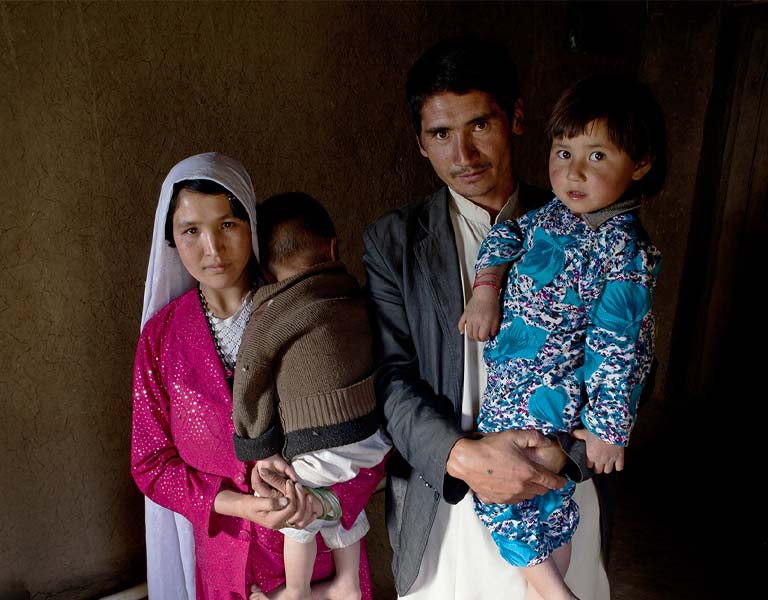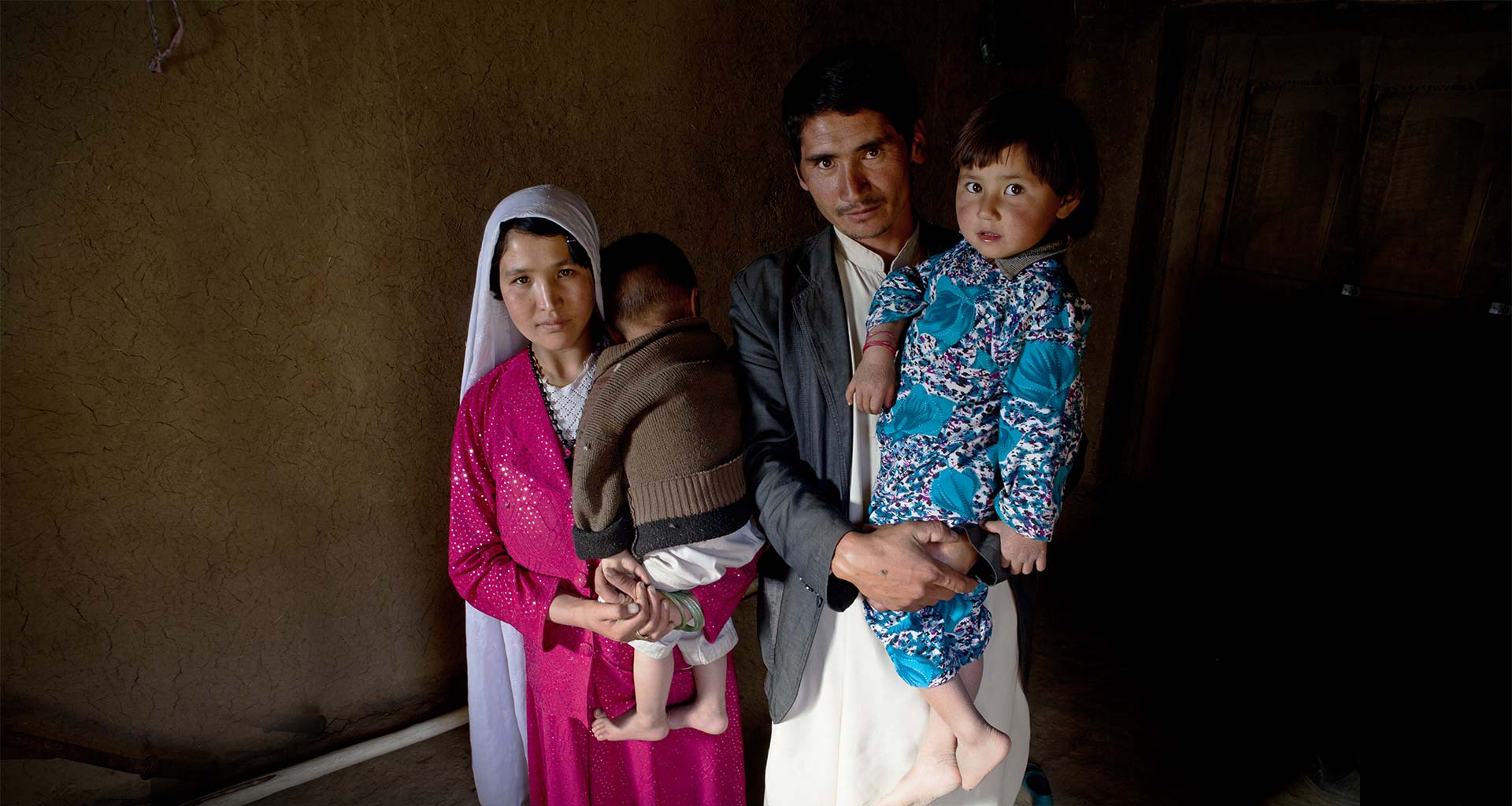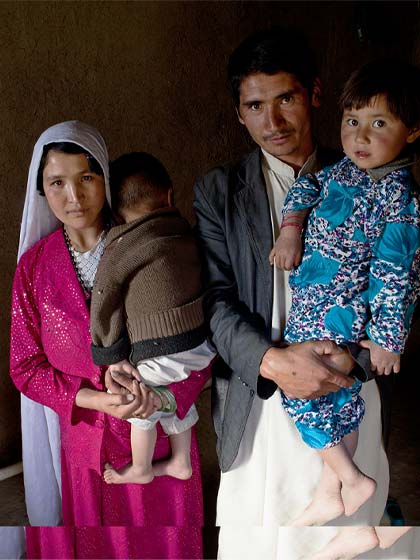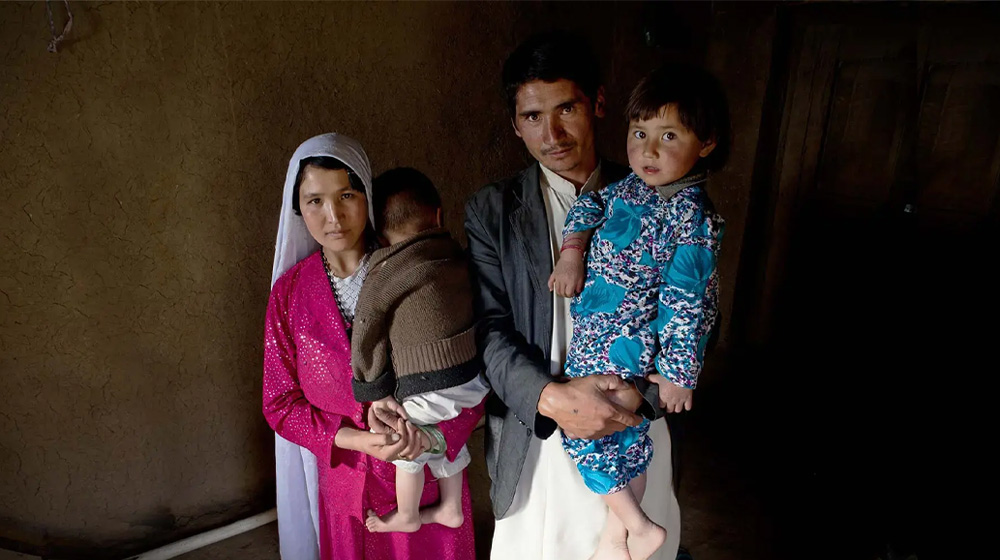Access to safe, voluntary family planning is a human right. Reproductive agency – the right to freely choose whether, when and with whom to have a child, without coercion, fear or judgment – remains out of reach for millions. Family planning is central to achieving gender equality and women’s empowerment, and it is a key factor in reducing poverty.
Yet an estimated 259 million women who want to avoid pregnancy are not able to use safe and effective modern methods of contraception, due to hurdles including a lack of access to information or services and an absence of support from their partners or communities. This threatens women’s ability to build a better future for themselves, their families and their communities.
UNFPA supports family planning in more than 120 countries by ensuring a reliable supply of quality contraceptives, strengthening health systems to deliver women-centred, rights-based services and advocating for policies that uphold reproductive agency and equity. UNFPA provides global leadership by convening governments and partners to align evidence, financing and action, and by delivering programmatic, technical and financial support to help countries maintain advances in family planning and reproductive health.
Family planning includes the information, means and methods that allow individuals to decide freely if and when to have children, and how many. This includes a wide range of contraceptives – pills, implants, intrauterine devices and barrier methods such as condoms – as well as surgical procedures that limit fertility, and fertility-awareness methods and abstinence. Family planning also covers access to information about becoming pregnant when desired and to services for infertility care.
UNFPA supports voluntary rights-based family planning by ensuring access to a broad choice of affordable, quality contraceptives; training health professionals to deliver accurate and person-centred counselling; and promoting comprehensive sexuality education in and out of schools. UNFPA never promotes abortion as a form of family planning.
Contraceptives prevent unintended pregnancies, reduce the number of abortions and lower the incidence of death and disability related to complications of pregnancy and childbirth. In 2024, UNFPA-supported contraceptives prevented 18 million unintended pregnancies, 7.5 million unsafe abortions and 39,000 maternal deaths. Preventing unintended pregnancies is not only a public health priority, but also a path to empowerment and equity, with cascading benefits for families and societies.
Every year, about 121 million unintended pregnancies occur globally – half of all pregnancies. More than half of abortions in developing countries are unsafe, leading to preventable maternal deaths and injuries. More than 60 per cent of maternal deaths occur in fragile and conflict-affected settings, where contraceptive services are critical, life-saving interventions.
Beyond pregnancy prevention, contraceptives can also play a vital role in preventing sexually transmitted infections. Male and female condoms, when used correctly and consistently, provide dual protection against both unintended pregnancy and sexually transmitted infections, including HIV.
Increasing knowledge about and access to modern contraception among adolescent girls is a crucial starting point for improving their long-term health – and can save their lives. Around the world, complications from pregnancy and childbirth are a leading killer of adolescent girls (ages 15–19). Their babies also face a higher risk of dying than those of older women. Yet adolescents face enormous barriers in exercising their reproductive rights and accessing services.
UNFPA works to improve access to sexual and reproductive health services for young people, especially marginalized adolescents. For example, in Jordan, UNFPA supports the delivery of quality, youth-friendly, rights-based services; across Latin America and the Caribbean, healthcare providers are trained to provide age-appropriate, confidential, non-judgmental services and comprehensive sexuality education through the initiative My Body, My Life, My World.
Access to contraceptive information and services is foundational to achieving gender equality. When women and couples are empowered to plan whether and when to have children, and how many, women are more able to complete their education, while their autonomy within their households is increased and their earning power is improved.
UNFPA promotes women-centred approaches that respect fertility aspirations across the spectrum – whether to delay, limit or achieve pregnancy – as set out in its Strategy for Family Planning 2022–2030. This strengthens women’s economic security and well-being and that of their families.
Cumulatively, these benefits contribute to poverty reduction and global development. These benefits were recognized in the Programme of Action of the International Conference on Population and Development, which called for “the right of men and women to be informed and to have access to safe, effective, affordable and acceptable methods of family planning of their choice.” This agreement lays the foundation for much of UNFPA’s work.
The report on the thirtieth anniversary of the International Conference on Population and Development (ICPD30) reaffirmed this vision and highlighted the need to scale up access to sexual and reproductive health and ensure that reproductive agency and demographic resilience are at the heart of sustainable development.
Achieving universal access to sexual and reproductive health is one of the most effective investments a country can make. Preventing unintended pregnancies saves lives and reduces health costs, while also unlocking a cascade of benefits – from improving maternal and child health to expanding education and economic opportunities for women and girls.
It is estimated that every $1 spent ending unmet need for contraception yields nearly $27 in economic benefits.
Family planning also strengthens demographic resilience, enabling countries to adapt to changing population dynamics and plan for equitable, sustainable development. By supporting individuals to realize their reproductive intentions, family planning contributes not only to improved health and empowerment, but also to long-term social and economic stability.
-Prevented 18 million unintended pregnancies
-Averted 7.5 million unsafe abortions
-Prevented 39,000 maternal deaths
Women and girls face serious barriers to using contraceptives. Estimates show that in 2024, some 259 million women and adolescent girls wanted to prevent or delay pregnancy but were not using a modern, reliable form of contraception.
Common reasons why women do not use contraceptives include logistical problems, such as difficulty travelling to health facilities or stockouts at health clinics, and social barriers, such as opposition by partners or families. Widespread misinformation and lack of accurate information also undermine contraceptive use.
Poorer women and those in rural areas often have less access to family planning information and services. Adolescents, unmarried people, urban poor, sex workers, people living with HIV and those in crisis or humanitarian settings face greater constraints as well, which can lead to higher rates of unintended pregnancy, increased risk of HIV and other sexually transmitted infections, unsafe abortion, poor health outcomes and deepened poverty. Particular attention must be paid to promoting the reproductive rights, and access to family planning and other sexual and reproductive health services among these groups.
About 1 in 10 women globally are not free to decide whether or not to use contraception, with even greater constraints in crises.
UNFPA works at every level to improve access to family planning and empower individual choices. UNFPA works with governments, non-governmental organizations, community-service organizations, faith-based organizations, youth groups and the private sector to strengthen community-based and youth-friendly services, including in humanitarian crises. UNFPA also works to ensure that women, adolescents and communities have a voice in shaping policies and services that affect their reproductive lives.
Through the UNFPA Supplies Partnership, UNFPA works with partners and governments to ensure resilient, reliable supply chains and a broad contraceptive method mix. The partnership also supports sustainable financing, helping countries mobilize and allocate domestic resources for reproductive health commodities, reduce dependence on external aid and secure long-term reproductive health access for its population. UNFPA also works to integrate family planning services into primary healthcare, so that all people are able to access information and contraceptives no matter what health facility they visit.
UNFPA is a co-sponsor of the global High Impact Practices in Family Planning initiative, which synthesizes evidence and lessons learned to help countries scale up rights-based, effective approaches that expand contraceptive access, quality and choice.
UNFPA is also a key partner in the Family Planning 2030 global partnership, which aims to achieve voluntary modern contraceptive use by anyone who wants it. This contributes towards a future where women and girls everywhere have the freedom and ability to lead healthy lives, make their own informed decisions about using contraception and having children, and participate as equals in society and its development.
Guided by its Family Planning Strategy 2022–2030, UNFPA is focusing on eight interlinked priority areas to accelerate progress on rights and choices and achieve the Sustainable Development Goals:
- Investing in adolescents and youth to expand access and participation.
- Strengthening supply chains so contraceptives reliably reach those who need them.
- Securing sustainable financing to reduce reliance on external aid and ensure resilience.
- Improving quality of care through person-centred, respectful services.
- Expanding contraceptive choice with a broad, rights-based method mix.
- Strengthening accountability to ensure governments and health systems uphold commitments.
- Integrating family planning into primary healthcare for universal access.
- Harnessing innovation and technology to reach underserved populations and improve efficiency.
With its current Strategic Plan, UNFPA aims to achieve three world-changing transformative results: ending maternal deaths, ending unmet need for family planning and ending gender-based violence and harmful practices. Providing family planning information and services is a critical part of these efforts.
Despite progress, global funding for sexual and reproductive health has declined in recent years, straining programmes and supply chains in many countries.
Achieving universal access to family planning is more urgent than ever. Yet progress is threatened by the shrinking global funding for sexual and reproductive health. Without sustained and predictable investment, the gains of recent decades are at risk of being reversed. Ensuring sustainable financing – alongside resilient supply chains and rights-based, person-centred services – is critical to securing choices and opportunities for every generation.
Updated 31 October 2025



